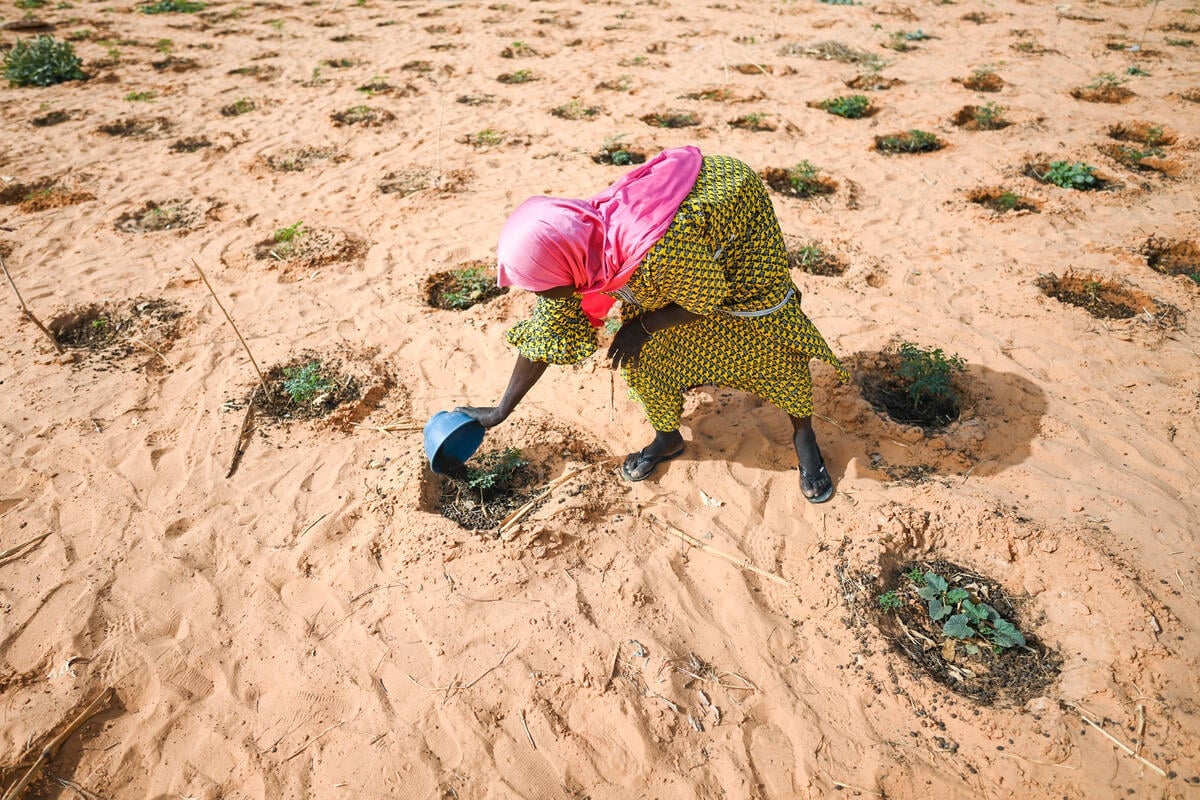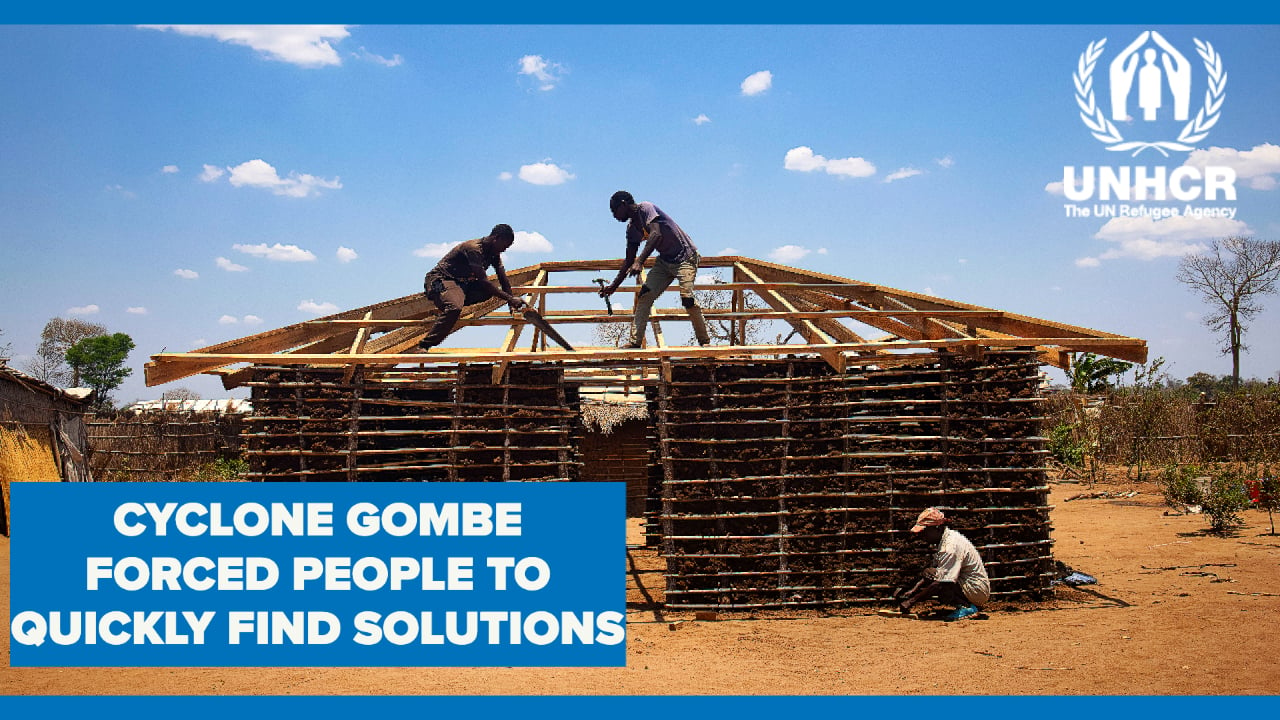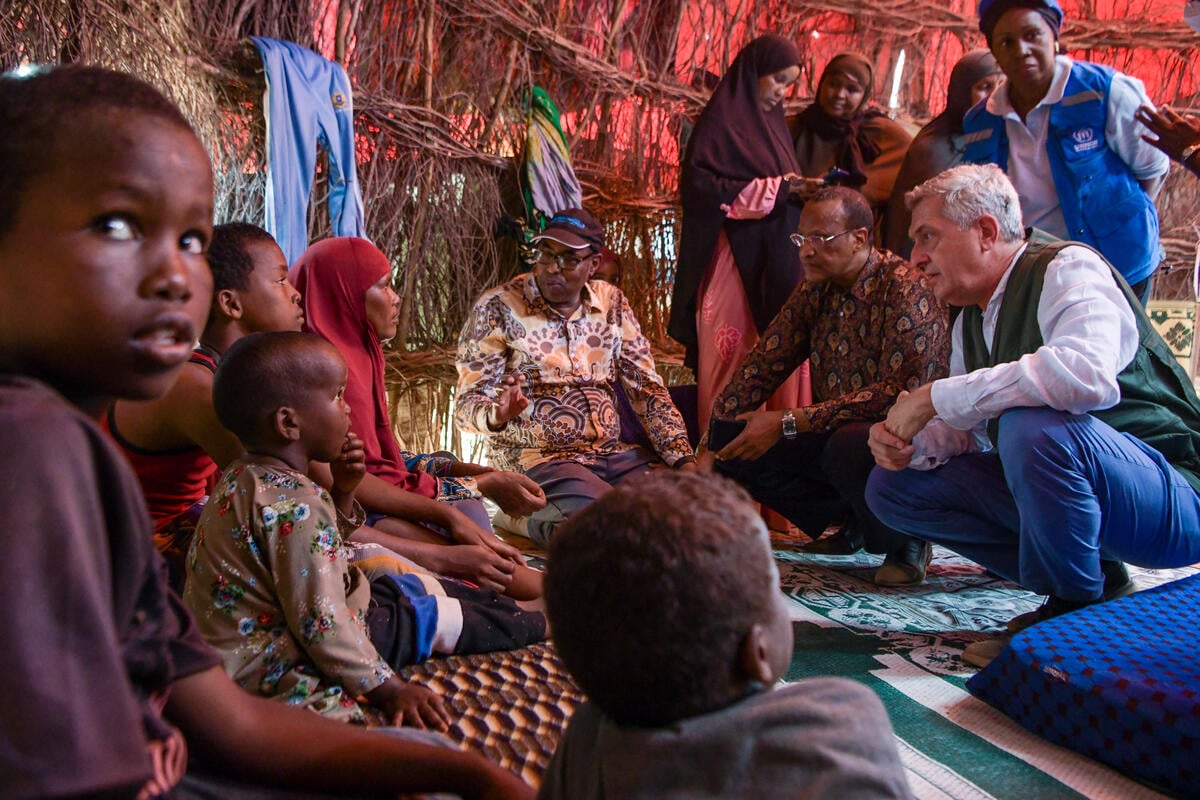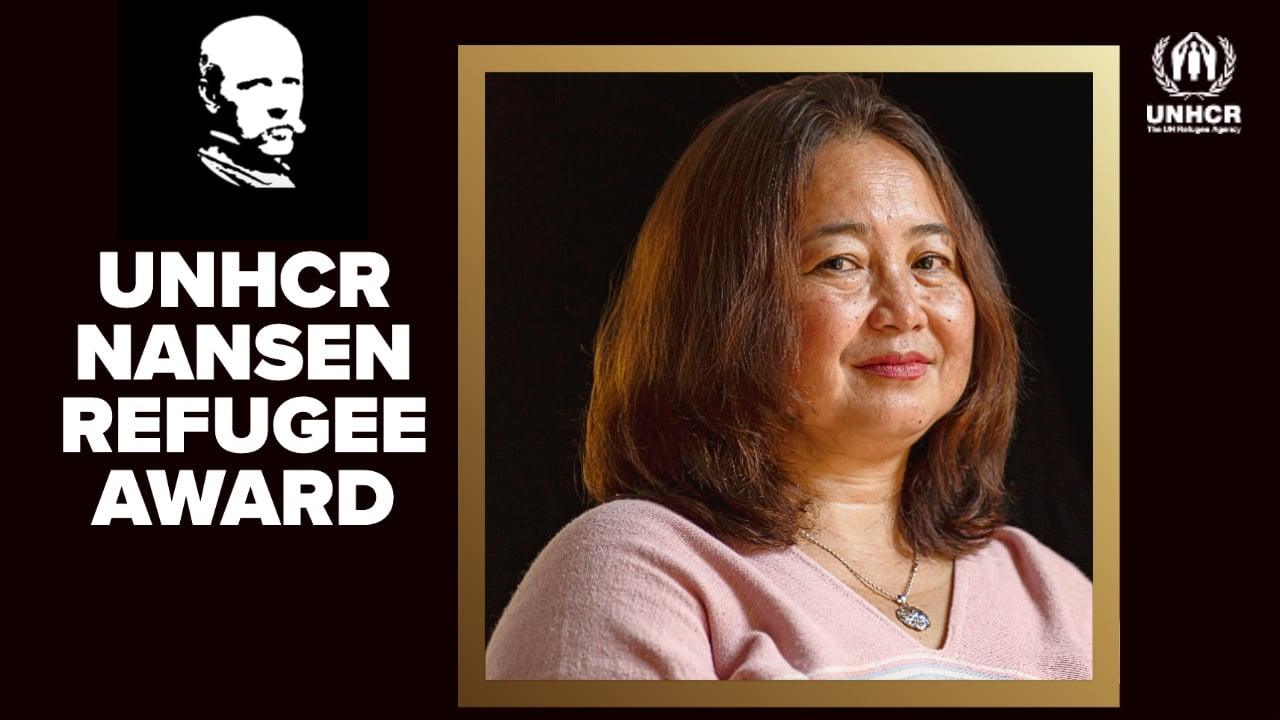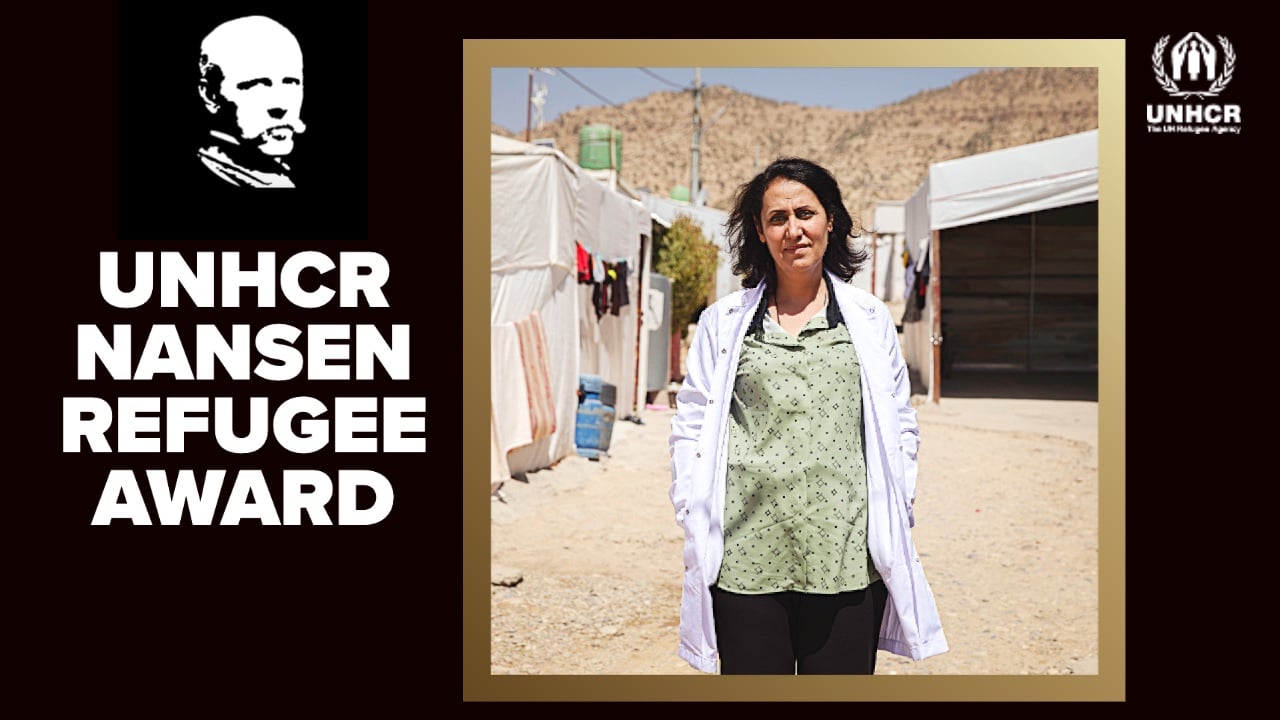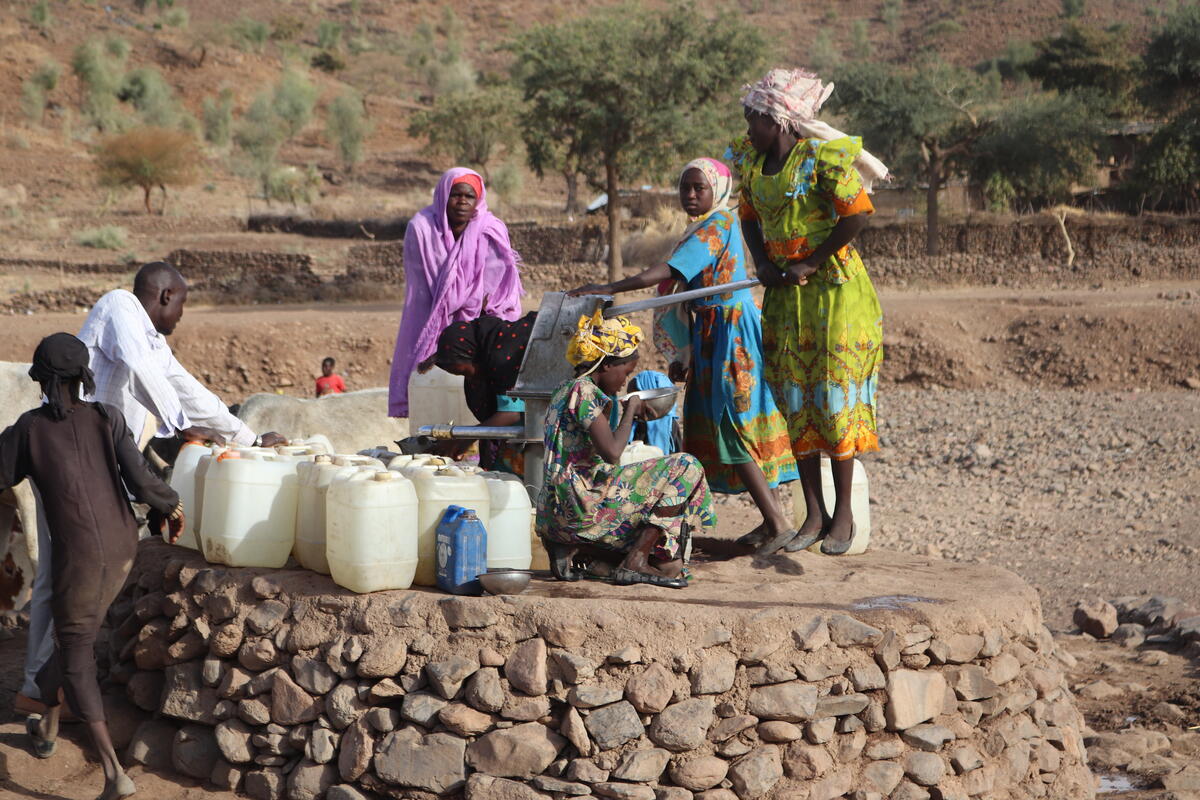Fighting this year in Iraq's Anbar province displaces almost 500,000
Fighting this year in Iraq's Anbar province displaces almost 500,000

GENEVA, June 6 (UNHCR) - The UN refugee agency on Friday said that violence in central Iraq's restive Anbar province has displaced close to half-a-million civilians so far this year. "With a deteriorating security situation, it is also becoming harder for humanitarian actors to reach those in need," said UNHCR spokesman Adrian Edwards.
He told journalists in Geneva that the Iraqi government puts the number of displaced since January at 434,000 men, women and children. "However, the full scale of the displacement from this under-reported conflict is unknown, as the Iraqi authorities have had to suspend registration over the past month because of insecurity," he said, adding: "UNHCR believes the current figure is now close to 480,000."
Iraq's new displacement crisis began in January with fighting between government forces and rebels in eastern Anbar. It has continued in various waves as the fighting locales shifted within Anbar. There was further displacement last month when fighters deliberately breached a dam in Anbar's Abu Ghraib district, flooding the area and forcing some 72,000 Iraqis from their homes.
While the floodwaters have subsided, and people are returning to their homes, there are now health and recovery worries. Access to clean water is a pressing concern, because the flooding damaged water treatment plants. Local officials say 28 tanker truckloads of potable water are being delivered to the area every day, but this is only meeting 50 per cent of needs.
There are also fears about further civilian flight from the city of Fallujah. Recent shelling of the city has sparked new displacement and hit a city hospital and water plant there.
"Our field teams report that many displaced people are struggling to cope in desperate conditions, spread out across Iraq," UNHCR's Edwards noted. The highest concentrations of displaced people are in the Anbar and Salah al-Din governorates (provinces), followed by Erbil, Kirkuk, Sulaymaniyah and Baghdad.
The more fortunate are living with friends and relatives, but others are in tents, schools, unfinished buildings and other types of communal shelters. In Anbar alone, where there are almost 300,000 displaced people, more than two-thirds are living in schools.
"Displaced people tell us housing stock is limited, and increasingly expensive. Most are without income and are going into debt to pay for essential needs. Families say access to housing and food is a top priority," Edwards said.
While UNHCR has provided emergency relief kits to more than 48,000 people and emergency cash assistance to 3,000 of the most vulnerable people, this represents a fraction of what is needed.
"We urgently need to ramp up our response," Edwards stressed while noting that the challenges included difficulties reaching people because of the insecurity; the displaced are spread out across the country; and there is insufficient donor support. A UNHCR special appeal for US$26.4 million launched in March is only 12 per cent funded. "Better funding is critical to help those who are displaced now, and when they return home in the future," Edwards said.


